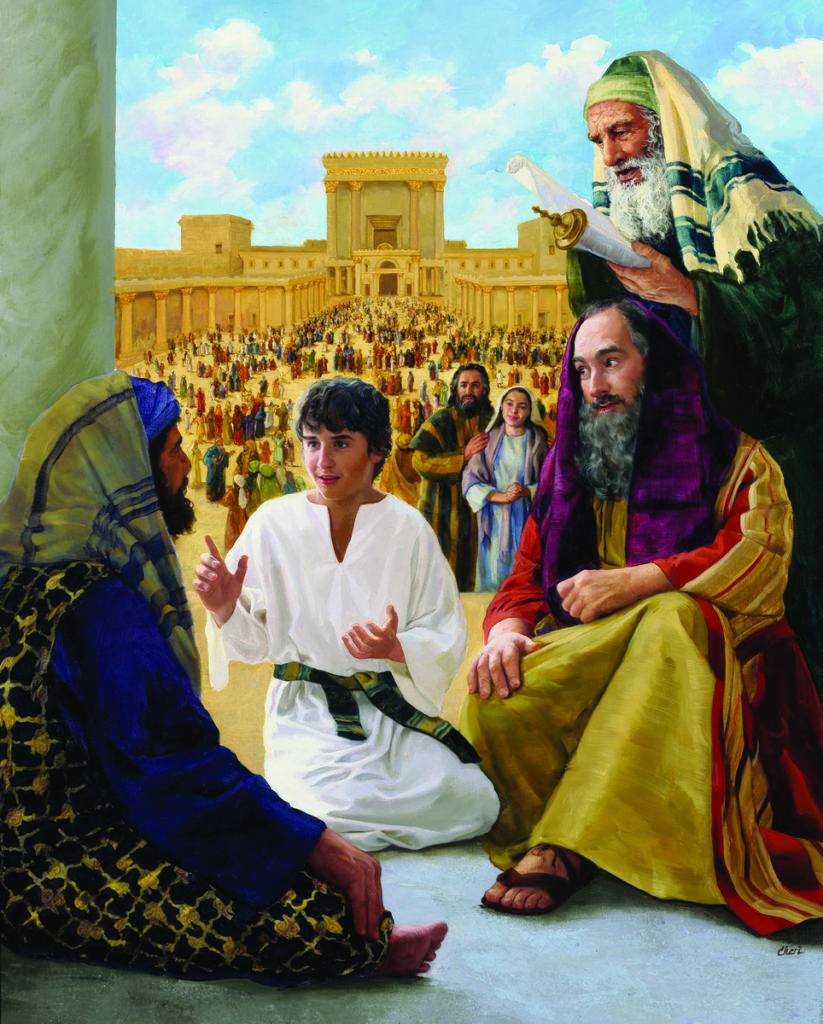
Mary and Joseph spent three days looking for the twelve-year old Jesus whom they thought was lost. After they found Him in the temple, Mary said to Jesus, “Son, why have you done this to us? Your father and I have been looking for you with great anxiety.” Jesus said to them, “Why were you looking for me? Did you not know that I must be in my Father’s house?” (Luke 2:48-49)
Jesus’ response is a revelation which helps us to understand who He is. In the Gospels, this is the first time that Jesus reveals that His Father is God the Father. Here, we are reminded of the mystery of the two natures of Christ: His divine nature of which He is consubstantial with God the Father, and His human nature of which His flesh came from Mary. Jesus had no human father, so 100% of His DNA came from Mary.
The response: “I must be in my Father’s house” may also be translated as, “I must be doing my Father’s work.” Jesus also reveals that at the age of twelve, He is already aware that God’s work is His work. Jesus’ words serve as a precursor to His public ministry when He was about 30 years of age. (cf. Luke 3:23)
The Gospel of Luke tells us that Jesus went down with them to Nazareth, and was obedient to them; His mother kept all these things in her heart, and Jesus advanced in wisdom and age and favor before God and man. (Luke 2:51-52) Many commentaries refer to the childhood years of Jesus as His “hidden” life, which is the period when Jesus grew, learned and worked under the care of Mary and Joseph.
Christian tradition recognizes the Holy Family of Jesus, Mary and Joseph as the model of Christian life. Hopefully, life in Christian homes may be patterned after the virtues of the Holy Family – virtues like wisdom, peace, love and obedience to parents. However, many families today, whether still living in the same home or not, are faced with deep divisiveness on issues regarding culture, politics, religion and personal decisions. Some families have been torn apart, lost respect for each other and nurture deep feelings of hurt, anger and resentment. What can we do about that?
First of all, we need to pray, regardless if it is for our own families or for the families of others. We pray to God that the grace of wisdom and understanding be imparted to all families, but more so to families facing divisive issues. Second, we need to realize that whether or not our families agree or disagree on issues, we deserve to live in peace and with respect for one another. The Christmas season is an opportune time for us to reach out, to reconcile and to forgive past hurts. We all know which issues divide our families; but getting together with family for any occasion is an opportune time to put all those issues aside for a while and to enjoy God’s gift of family.